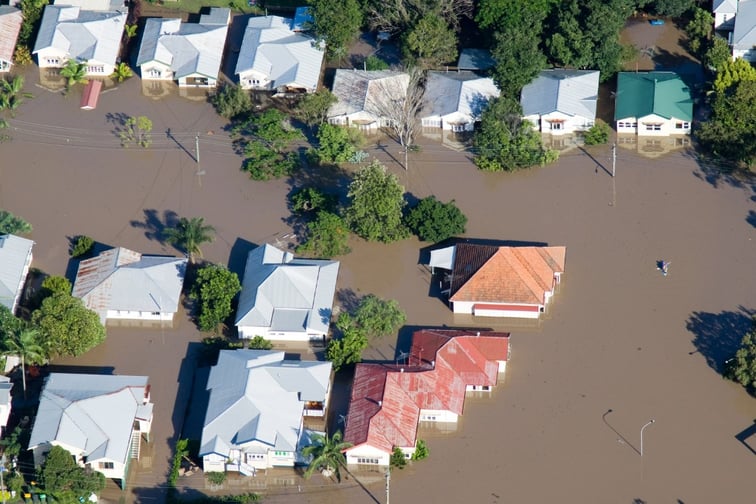

With the catastrophic flooding in Queensland and New South Wales (NSW) from late February to early March 2022 named the third-costliest natural disaster in Australian history, the Insurance Council of Australia (ICA) has welcomed the Queensland government’s independent review of the Queensland Building and Construction Commission (QBCC) to ensure homes in the state remain resilient to extreme weather.
The independent review, called “QBCC Governance Review 2022,” delves into developers’ role in the Queensland building and construction industry and aims to establish a steering committee to monitor and report on the progress of QBCC’s recommendations.
The recommendations in the review match those made by the ICA in “Building a more resilient Australia,” a report outlining the need to improve protections for Australians from extreme weather risks.
“As the regulator of the third-largest contributor to the Queensland economy, the Queensland Building and Construction Commission has an integral role to play in improving the resilience of Queensland homes to worsening extreme weather,” said ICA CEO Andrew Hall. “The ICA and insurers are pleased with the recommendations of the independent review as it drives home the urgent need to improve resilience for homes, which will directly impact on premiums for at-risk communities.”
In a statement, the Queensland government said it supports and is committed to addressing the independent reviewer’s findings to deliver reforms that reflect outcomes sought by the recommendations and review. It also recognised that many of the specific actions are complex and need further detailed analysis before deciding how to deliver the recommendations’ intention.
“The Queensland government is prioritising actions that strengthen the conflicts of interest framework, improve transparency, impartiality, fairness, and consistency in the QBCC’s decision-making processes,” it said. “Other priorities include separating the functions of the mediation, resolution, and review unit from the QBCC licensing and compliance functions, as well as ongoing staff training to deliver a regulator with a clear focus on outcomes and customer service.”
